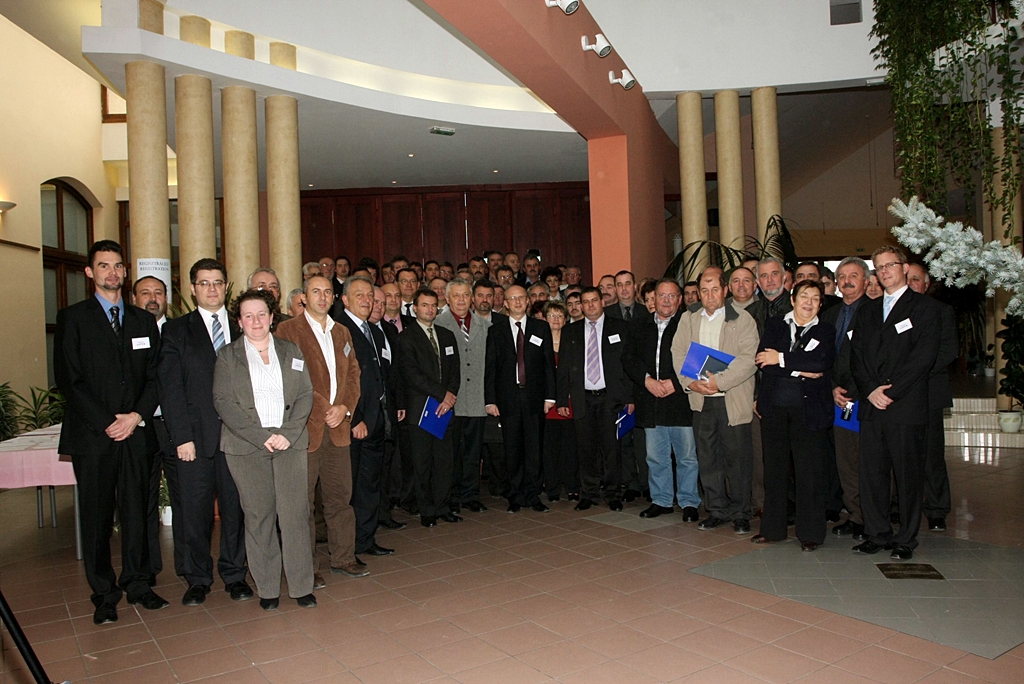
The mayors of the traditionally multinational triple border (Triplex Confinium) region envisaged the establishment of an EGTC to further develop their contacts on a conference held at Zsombolya (Jimbolia) in November 2008. The ceremonial signature of the documents by the 74 municipal leaders was the result of a one-year preparation; they contain the geographical borders, the priorities and the operational structure of the Grouping.
During the preparatory work – in accordance with the concept of the “serving state” – the heads and the workers of the State Secretariat for Minority and National Policy of the Prime Minister’s Office (MEH) and the Public Fund for European Comparative Minority Research (EÖKiK) provided considerable professional background support.

The participants of the founding session held in the Aranyszöm Event House at Mórahalom declared that the objective of their development oriented cooperation (independent from nationality or party affiliation) is increasing the dynamism and the competitiveness of the border regions that shifted to the periphery in the last decades. In the definition of priorities they set out from the common conditions and the barriers hindering development. Therefore BTC EGTC wishes to elaborate and - primarily on the basis of tenders for European Union sources - implement development strategies in the field of agrarian innovation, renewable energy sources, infrastructure and education-training.
The founders elected Zoltán Nógrádi (mayor of Mórahalom) as Chief Executive Officer of the organisation and Gábor Kaba (mayor of Zsombolya), Mihály Nyilas (mayor of Magyarkanizsa (Kanjiza)) and Attila Marosvári (deputy mayor of Makó) as his deputies. Besides them the executive board includes Groza Danut (Mayor of Nagyszentmiklós (Sânnicolau Mare)) and Károly Szente (mayor of Madaras). The Chairman of the Supervising Committee is Roman Petru (mayor of Deta), and its members are József Maczkó (mayor of Kelebia) and Ernőné Szegvári (mayor of Kiszombor).
The registration of BTC EGTC, a body with independent legal personality whose centre is at Mórahalom also requires the approval of the competent national authorities of the three countries. Besides the facilitation of the development of the triple border region positive treatment would be a great step forward in the accession of Serbia into the EU. According to the registry of the EU Committee of the Regions until now eight (out of these two Hungarian-Slovakian) EGTCs were registered. The “Banat – Triplex Confinium” could be the first EGTC in Europe that has non-Union (Serbian) members as well.